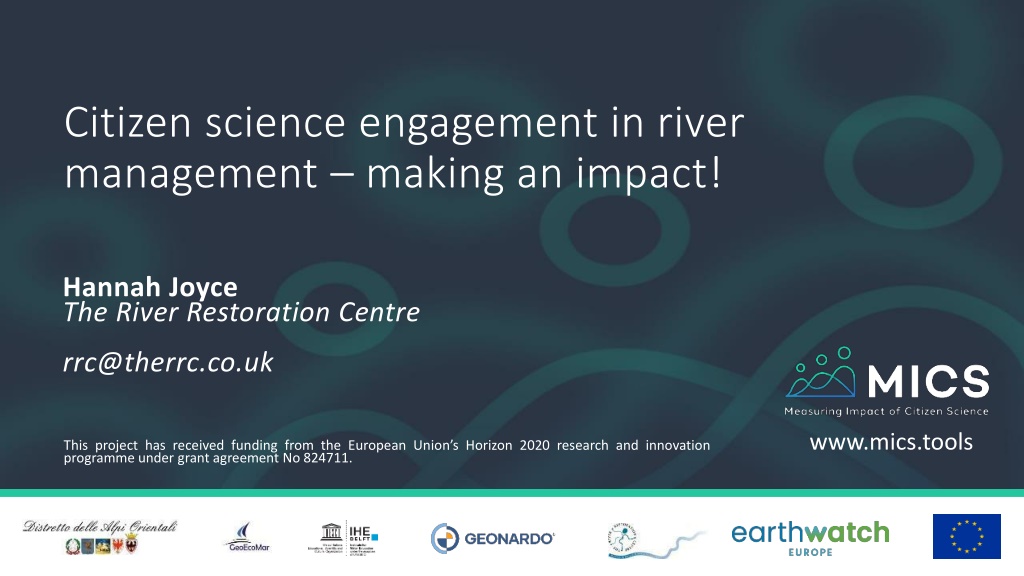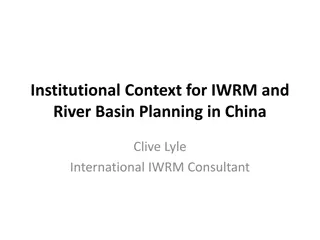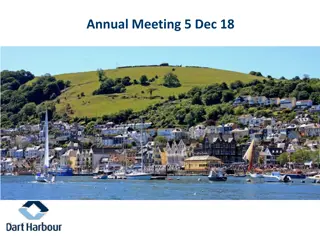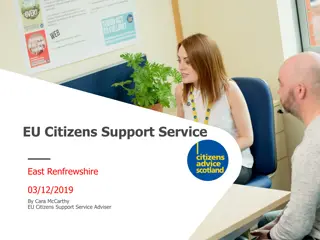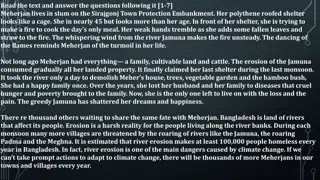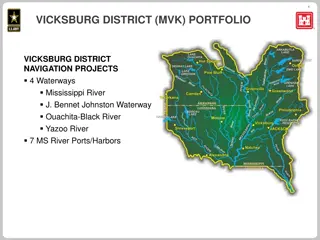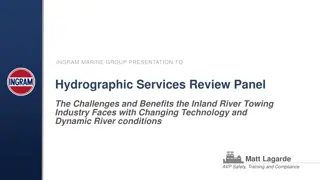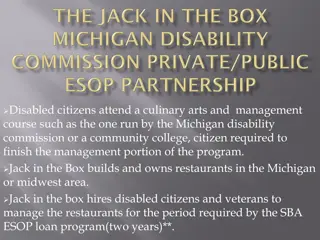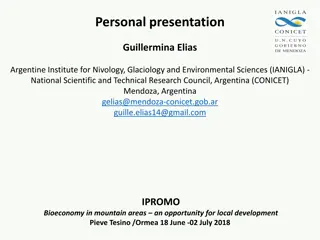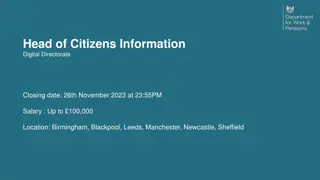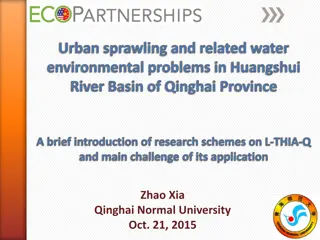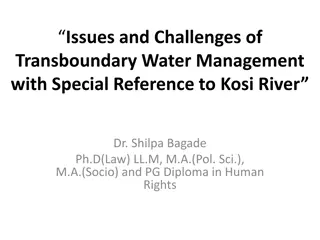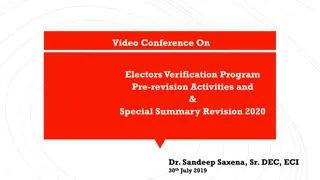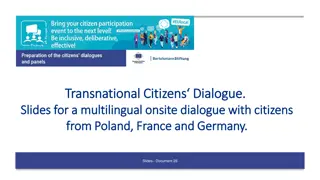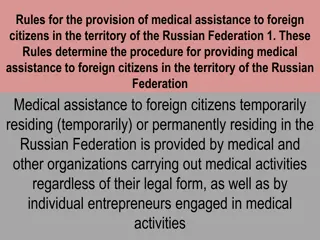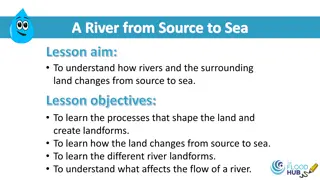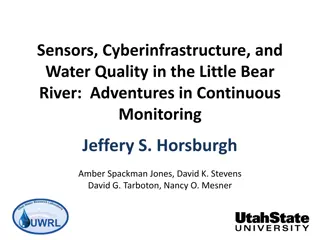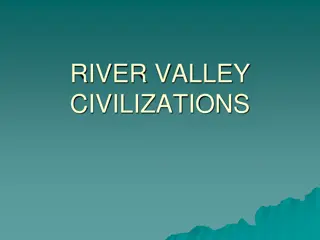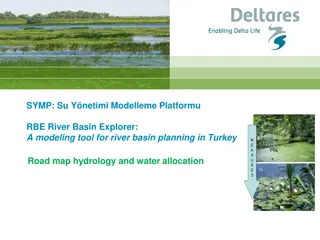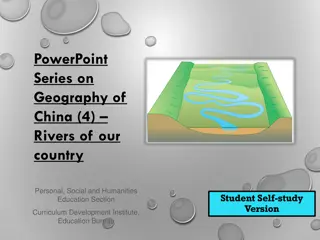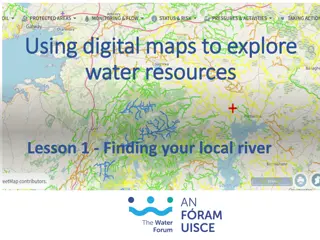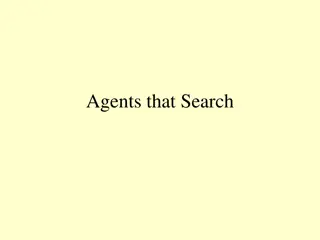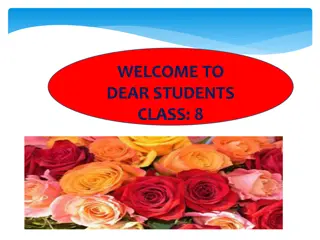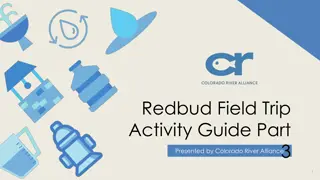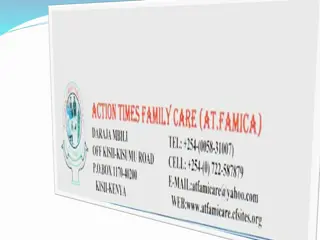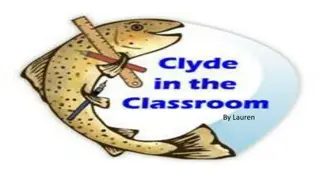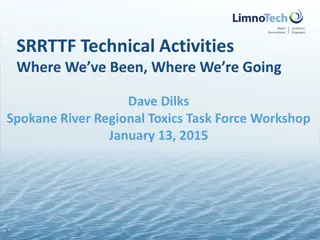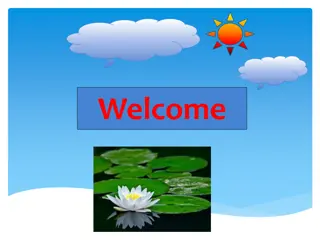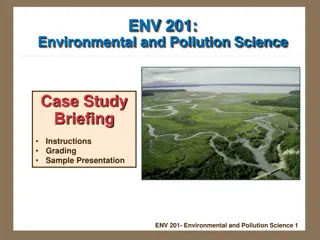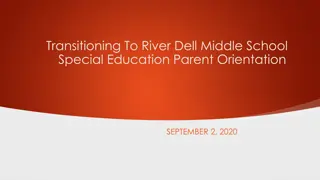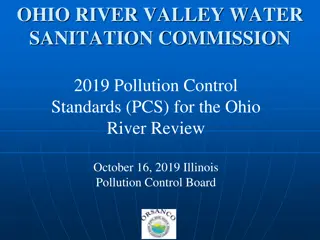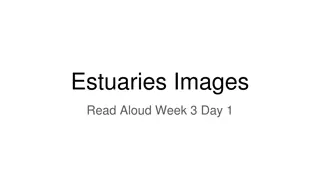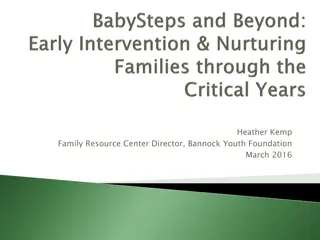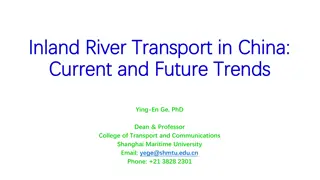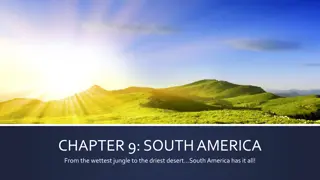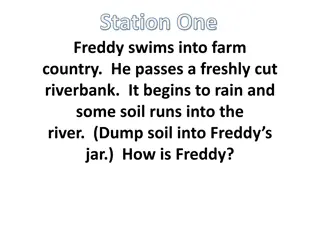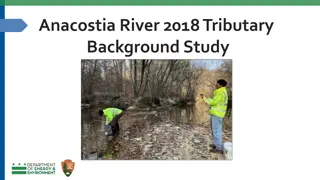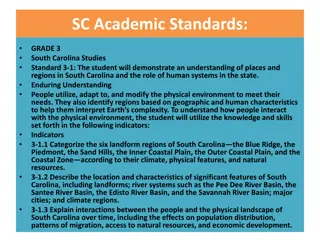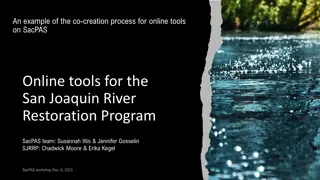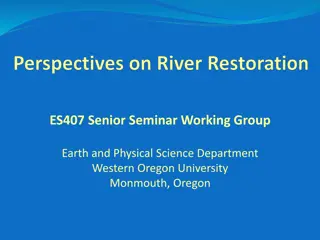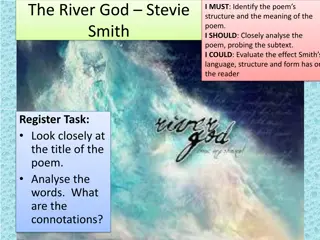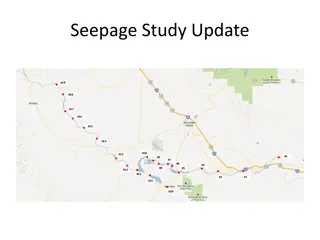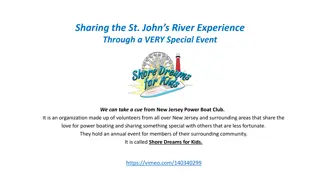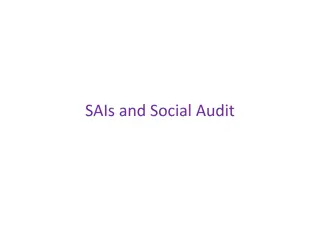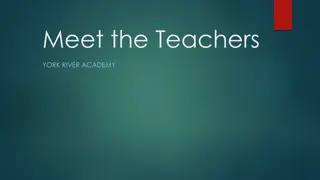Engaging Citizens for River Management Impact
Citizen science engagement in river management has significant impacts on society, the environment, and governance. This involvement ranges from data collection to collaborative project design, empowering citizen scientists and leading to improved river health and community awareness.
Download Presentation

Please find below an Image/Link to download the presentation.
The content on the website is provided AS IS for your information and personal use only. It may not be sold, licensed, or shared on other websites without obtaining consent from the author. Download presentation by click this link. If you encounter any issues during the download, it is possible that the publisher has removed the file from their server.
E N D
Presentation Transcript
Citizen science engagement in river management making an impact! Hannah Joyce The River Restoration Centre rrc@therrc.co.uk www.mics.tools This project has received funding from the European Union s Horizon 2020 research and innovation programme under grant agreement No 824711.
Citizen Science Citizen science is the active involvement of members of the public in scientific research Citizen science has multiple short and long term impacts on society, environment, governance, science & technology & the economy: Data collected Rivers managed Increased sense of community Improved volunteer health Improved community awareness and knowledge of environmental problems Improved river water quality & habitats Improved policies / legislation Improved decision making 80% believe that citizen involvement in nature based solutions is important or very important Image source: The Rivers Trust, 2
Levels of Citizen Science Engagement Designed by scientists. Citizens collect data or carry out activities (e.g. restoration work) Contributory Level of engagement Citizens contribute data and help in project design, but aims decided by managers Collaborative Citizens are engaged in all stages of project, working alongside project coordinators to define the problem, the aims, agree activities, collect & analyse data Co-created / Co- designed Haklay, M., 2013. Citizen science and volunteered geographic information: Overview and typology of participation. Crowdsourcing geographic knowledge, pp.105-122. Wehn, U. (2020). D4.6 Guidance for co-design of citizen science activities in the MICS case-study sites, deliverable report of project H2020 MICS (grant agreement No 824711) 3
Contributory to collaborative citizen science in the UK Riverfly in Lincolnshire Chalk Streams Riverfly is a method for monitoring invertebrate indicator species to tackle pollution in rivers Contributory projects can become collaborative over time Volunteers wanted to expand the Riverfly methodology This led to the development of the Extended Riverfly survey Encourages long-term engagement & empowerment of citizen scientists 4
Co-created Citizen Science Projects: Hungary & Italy Creek R kos, Budapest, Hungary Co-design workshops involved identifying issues to tackle (flood risk and urban pollution) and designing a monitoring plan Increased engagement and local support Data collection to identify sites suitable for river restoration Creek R kos, Budapest Marzenego River, Venice Lagoon, Italy Co-design of citizen science priorities & activities Citizen science activities to monitor biodiversity & water quality in restored lagoon Citizens involved in maintenance and management of wetlands Marzenego River, Italy 5
Summary Citizen science can help to deliver and support successful river restoration and management Citizens can be involved in river management at different levels from data collectors or censors to co-creators Citizen science can have short and long term multiple impacts on: society, governance, economy and science and technology and our environment Improved understanding/awareness of environmental problems Improved policies / legislation Improved water quality & habitats Improved decision making Business creation Improved volunteer health Community building If you would like to find out more please visit: www.MICS.TOOLS 6
Acknowledgement This project has received funding from the European Union s Horizon 2020 research and innovation programme under grant agreement No 824711. 7
